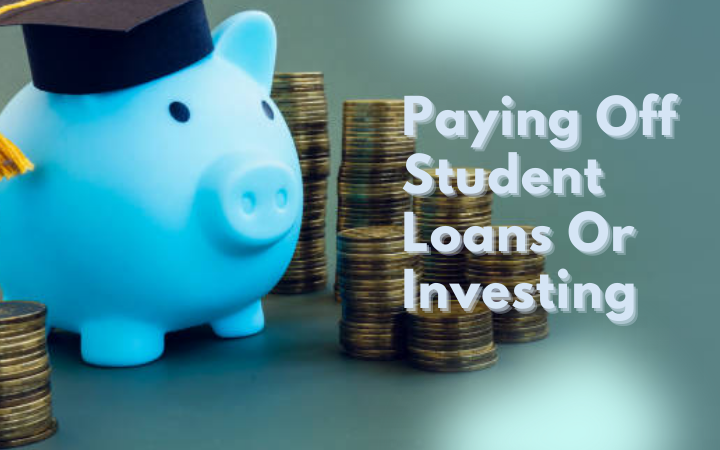When you get a job after years of hitting the books at college, it's natural to find yourself torn between two choices: do you pay off student loans you’ve accumulated over the years or invest the disposable income from your new job?
Generally, investing is considered a better option. If you do your research right, you can expect returns that are far higher than your student loan interest rate. However, investing can also be pretty tricky. There’s no telling what might happen in the market. After all, there are no surefire investments and it is possible to lose your capital.
What should you do? We suggest taking strategic decisions. Here’s a rundown of everything you need to know and consider before making a choice.
Debt Repayment Versus Investing
A sound practice is to portion your budget into three categories: investment, debt repayment, and an emergency fund.
As a fresh graduate, you won’t have a large nest egg yet and it’s unwise to funnel all your money into one category. When deciding between repaying your student loan and investing, there are five things you should consider.
#1. What Are Your Student Loan Interest Rates?
Compare your student loan interest rate with your potential investment returns. If your student loan interest rate is higher than what you’re expecting to receive from investments, prioritize repaying your debt since it’s costing you more. If the reverse is true, then you can consider investing your money.
Generally, if you were able to get an interest rate that’s lower than 6% on your student loan, your debt isn’t costing you too much. Consider investing your money if you anticipate earning more than 6 percent
#2. What Are Your Priorities?
Some people would rather be debt-free before building a nest egg. If that’s a major goal for you, you’ll have to pay more than the minimum amortizations to pay off your loans quickly.
If your salary can cover the additional expense or have a side hustle that will allow you to top off more than the minimum payments, you can check with your loan provider and pay bi-weekly. Some will even allow you to pay multiple times a month. If you decide to go this route, examine your cash flow and expenses carefully to see if you can afford it and how much you can afford to pay.
#3. What Are Your Goals?
Your goals and priorities may include putting money down for a house or having kids in the near future. With goals that require a certain amount of liquidity, it's better to steer clear of investing and pay off the minimum on your student loans instead. This way, you will be able to fund personal goals and milestones as necessary.
If, however, you want to have a retirement plan in place, you can take advantage of the 401(k) that’s matched by your employer. You can also look for investment opportunities, weigh the pros and cons of each, and settle on the one offering you the best returns based on your risk appetite.
#4. Where Did You Borrow Money From?
Federal loans have a low interest rate bordering somewhere between 3 to 7 percent. If you’re able to avail of the Student Loan Forgiveness Program, all the better. This program cancels all or a certain amount of your student loans. If part of your debt is forgiven, invest your money and keep paying the minimum instead of focusing on paying it all off.
However, if you have private student loans, it’s better to focus on paying them off before you start investing. You may also choose to refinance your debt to lower your interest rate and pay off your debts faster.
#5. Are You Eligible For Tax Deduction?
Tax deductions can reduce your taxable income by up to $2,500 per year depending on your eligibility. By leaving you with a smaller tax burden, you can put more money towards your student loan and cut down on the time it takes to repay.
Save Money For Emergencies
When deciding how to allocate your budget, don’t neglect your emergency fund. It’s the most important savings to have. Ideally, you should put aside even a small sum before paying off loans and making investments. This amount should cover your living expenses for three to six months. If you’re strapped for cash, aim for at least $1,000 and just add to it whenever you have extra cash.
The Takeaway: Caution Minimizes Loss
Earning a salary after graduation is an exciting time. It’s the perfect opportunity to pay off debt, start an emergency fund, and make strategic investments. Before deciding what to do, consider the factors we’ve outlined above to arrive at the best decision given your financial situation.










.jpg)


